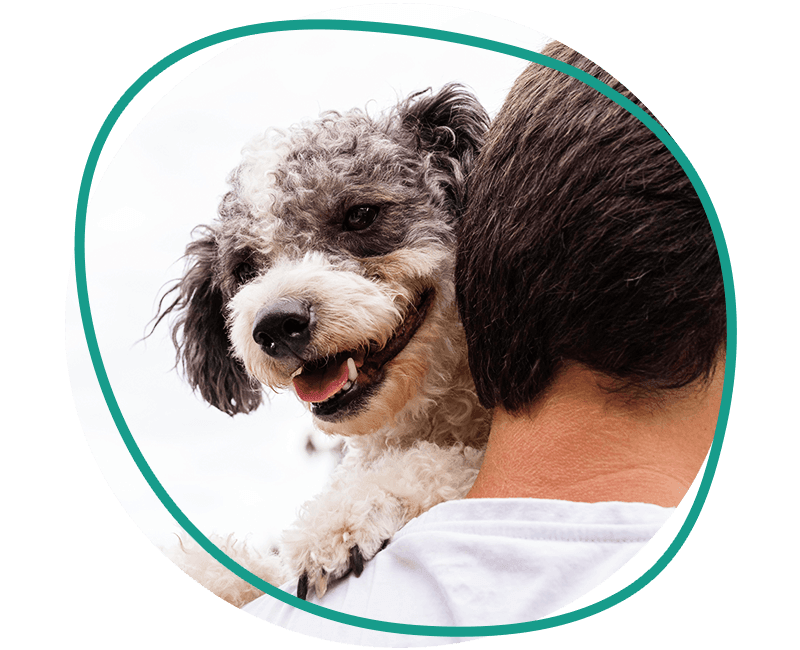- (919) 374-8488
- 3434 Kildaire Farm Rd #129, Cary, NC 27518
- Mon - Fri: 8am - 6pm | Sat & Sun: Closed
Care and Surgical Needs for Newly Adopted Mixed-Breed Dogs
Bringing home a mixed-breed dog from a shelter is pure joy—and the start of an important health journey. Because many rescue dogs arrive with incomplete medical histories, the weeks after adoption are the perfect time to catch up on preventive care, address hidden medical problems, and plan any needed surgical procedures. At SurgiVet, our surgical team in Cary proudly supports pet parents throughout Apex, Holly Springs, Garner, Fuquay-Varina, and the nearby communities with advanced veterinary surgery and compassionate guidance designed for real life.
Mixed-breed ("mutt") dogs make up a large share of the companion-dog population in the U.S., and most shelter adopters will meet plenty of them when looking for a new family member. Estimates vary widely, but national data sets show that mixed breeds often account for about half or more of owned dogs, while analyses of shelter intake records suggest that the overwhelming majority of adoptable dogs are not clearly purebred—meaning post‑adoption health planning matters for a lot of families.
Below you’ll find a practical, surgery-focused health checklist tailored to newly adopted mixed-breed dogs. Use it as a conversation starter with our team and your primary care veterinarian, and let’s get your new best friend off to the strongest possible start.
First Stop: Schedule a Comprehensive Post-Adoption Exam & Baseline Diagnostics
Many adopters assume that a shelter check-in covers everything, but post-adoption veterinary follow-up is critical—especially when medical records are incomplete or when a dog’s past care is unknown. A full physical exam combined with targeted diagnostics helps uncover problems that may not be obvious right away (dental disease below the gumline, early orthopedic changes, internal organ concerns, or reproductive issues).
At your dog’s post-adoption visit, ask about:
- Baseline bloodwork (CBC, chemistry) to assess organ function.
- Fecal testing for parasites common in shelter or outdoor environments.
- Urinalysis when urinary concerns are suspected.
- Dental evaluation under anesthesia if oral disease is suspected.
- Imaging (X-rays or ultrasound) when injury, congenital concerns, or masses are possible.
SurgiVet offers on-site laboratory capabilities to help your newly adopted dog get answers quickly and begin the right care plan. Learn more about our in-house diagnostic services.
For general post-adoption health planning and routine care considerations, the ASPCA’s dog care guidance is a helpful companion resource, and current shelter intake trends underscore why timely veterinary follow-up matters after adoption.
Spay & Neuter: A Foundational Step for Health, Behavior, and Population Control
If your newly adopted mixed-breed dog has not yet been sterilized—or if you’re unsure—confirm status at the first exam. Spaying or neutering is one of the most widely recommended surgical steps in companion animal care. Health benefits include protection against pyometra (a life‑threatening uterine infection), reduced risk of certain reproductive cancers (such as mammary tumors in females when timed appropriately and testicular cancer in males), and potential behavior benefits like decreased roaming and some hormone-driven behaviors.
Beyond individual health, sterilization also helps reduce the number of homeless pets entering shelters each year—an issue still affecting communities nationwide.
When you’re ready, our experienced team can help with safe, compassionate spay and neuter surgery and will walk you through pre‑operative fasting, anesthesia, and home recovery instructions.
Questions to discuss with SurgiVet before scheduling:
- Has my dog already been altered (scars, tattoo, or spay/neuter paperwork)?
- Does age, size, or medical condition change the surgical plan?
- What pain control and activity restrictions should I expect after surgery?
Dental Health: Rescue Smiles Often Need More Than a Quick Brush
Dental disease is one of the most common health problems seen in dogs, and many adopted pets arrive with tartar buildup, gingivitis, fractured teeth, or infection that owners can’t fully evaluate at home. Professional oral exams and dental cleanings under anesthesia allow veterinarians to scale above and below the gumline, take dental X-rays, and perform extractions when needed to relieve pain and stop infection from spreading.
Untreated periodontal disease doesn’t just cause bad breath—it can lead to tooth loss, chronic pain, and systemic inflammation that may affect the heart, liver, and kidneys over time. Regular professional care plus at-home maintenance (toothbrushing, dental chews approved by your vet) can dramatically improve quality of life.
When your new dog needs a thorough oral assessment, our team is ready with full‑service veterinary dental care including anesthesia, radiographs, surgical extractions, and personalized aftercare to keep your pet comfortable and safe throughout the recovery process.
Signs your adopted dog may need dental attention:
- Persistent bad breath
- Drooling or pawing at the mouth
- Difficulty chewing or dropping food
- Red, swollen, or bleeding gums
- Broken or discolored teeth
Hidden Issues You Can’t See: Soft-Tissue Concerns After Adoption
Rescued and previously unmonitored dogs sometimes come home with conditions that require surgical correction once they’ve settled in. These can include masses (benign or malignant), hernias, infected wounds, foreign-body ingestions, or reproductive emergencies such as pyometra in intact females. Early evaluation and treatment can prevent complications and ease discomfort.
Our soft-tissue surgery team performs a wide range of procedures—from mass removals and gastrointestinal foreign body surgeries to wound repair and emergency reproductive care—supported by pre‑surgical assessment, anesthesia monitoring, and structured discharge instructions.
Mobility Matters: Orthopedic Problems in Mixed-Breed Dogs
Whether your new dog is a young, energetic jumper or an older rescue with an unknown history, orthopedic issues are common reasons pet parents seek specialty surgery. Cranial cruciate ligament (CCL) rupture, hip dysplasia, chronic lameness, and poorly healed fractures are all concerns we see in adopted mixed-breed dogs. Many CCL injuries ultimately benefit from surgical stabilization to restore function and reduce long‑term joint damage; large and active dogs are especially at risk.
Early diagnosis, appropriate imaging, and a tailored treatment plan (surgery plus controlled rehab) can dramatically improve mobility and comfort. If you notice limping, stiffness after rest, reluctance to jump, or muscle loss in a limb, schedule an orthopedic consult. Our advanced orthopedic surgery services include surgical stabilization techniques, fracture repair, and post‑operative recovery support.
Watch for orthopedic warning signs:
- Sudden or intermittent lameness
- Favoring one leg after activity
- Difficulty rising or climbing stairs
- Audible “click” in a joint
- Decreased interest in play or walks
Pain Control, Anesthesia Safety & Compassionate Care Throughout the Surgical Journey
No matter which procedure your adopted dog needs—dental, spay/neuter, mass removal, or orthopedic repair—safe anesthesia and vigilant pain control are essential. Our team follows strict protocols including pre-anesthetic evaluation, individualized drug plans, and continuous monitoring during and after surgery to ensure the best outcomes.
Specifically, for orthopedic surgeries, SurgiVet provides detailed aftercare instructions to guide you through your pet’s recovery at home. We encourage pet parents to reach out with any questions or concerns, ensuring compassionate support every step of the way.
Your newly adopted mixed-breed dog deserves a healthy, pain-free start in their new life—and we’re ready to help make that happen. Whether you need diagnostics, spay/neuter, dental surgery, mass removal, orthopedic repair, or supportive care, SurgiVet is your locally owned surgical resource in Cary, serving Apex, Holly Springs, Garner, Fuquay-Varina, and surrounding communities.
Take the next step:
- Complete our New Client Form before your visit.
- Use our Appointment Request form to schedule a consult.
- Explore Pet Insurance resources if you’d like help budgeting for surgery.
- If your pet is experiencing an urgent situation, view local Emergency Vet contacts for immediate assistance.
We look forward to partnering with you and your new best friend.

You’ve Come to the Right Place
Exceptional Veterinary Care in Cary
SurgiVet provides compassionate, high-quality veterinary care for dogs and cats in Cary, Apex, Holly Springs, Garner, Fuquay-Varina, and the nearby communities.

SurgiVet is your locally owned and operated one-stop shop for all of your furry friend’s surgical needs in Cary.
Quick Links
Hours
Mon - Fri: 8am - 6pm
Sat & Sun: Closed



